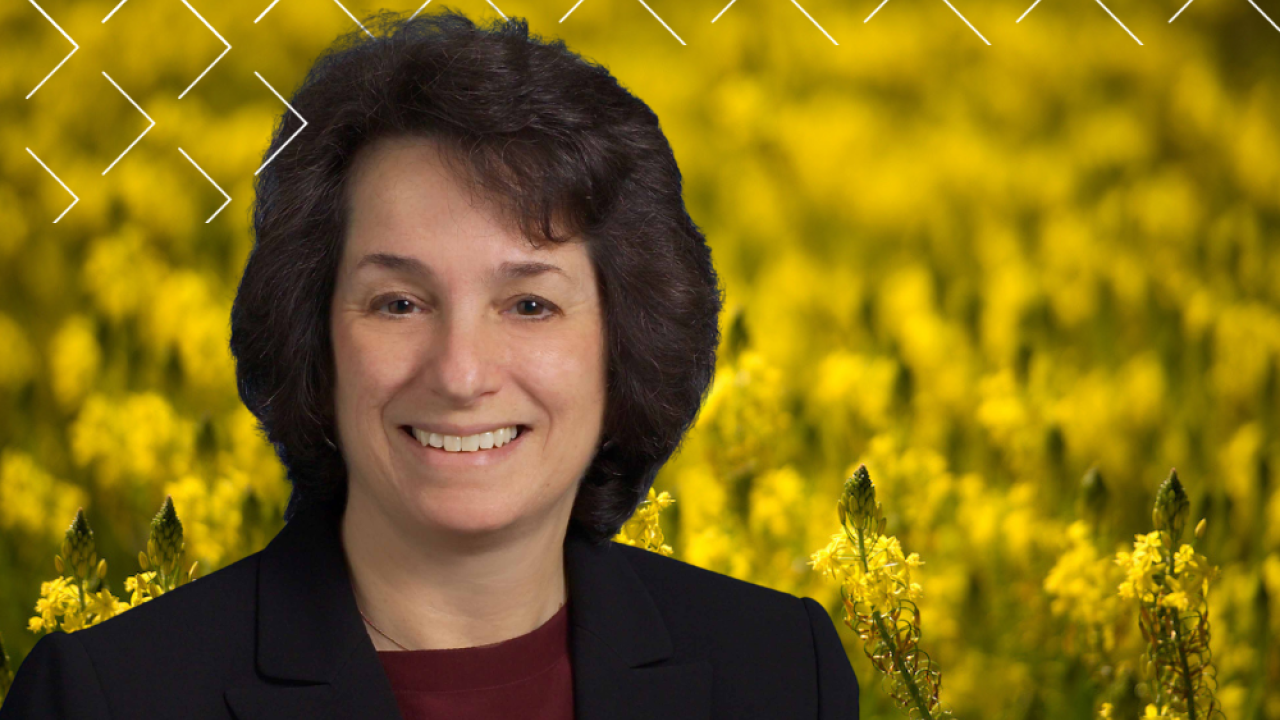
Professor Emeritus Ellen Gold Establishes Fellowship to Reduce Stress for Grad Students
Environmental and lifestyle factors can have a big impact on a person’s health.
It is a truth that UC Davis Professor Emeritus Ellen Gold, Ph.D. has dedicated her career to investigating as a nationally renowned epidemiologist. It also is what inspired her to create a fellowship for generations of UC Davis epidemiology graduate students and to make other gifts to ensure graduate students’ basic needs are met.
“I’ve been interested in lifestyle and environmental factors and their relationship to health risk because…lifestyle factors are potentially modifiable as are environmental exposures,” Gold said. “And so one can have an impact on changing people’s risk of adverse health conditions if they can identify those relationships so that those factors and exposures might be modified and thus reduce health risk.”
During her 40-year career as an epidemiologist, Gold led interdisciplinary studies that looked at the effects of lifestyle factors, occupational hazards and environmental exposures on women’s health, particularly ovarian function and menopause.
Specifically, Gold was the Principal Investigator of a NIH-funded longitudinal study called Study of Women Across the Nation (SWAN). For 25 years, Gold and an interdisciplinary team have worked with a cohort representing five racial/ethnic groups of midlife women from across the U.S. and studied their transition through menopause. Gold, along with the team investigated whether lifestyle, occupational and environmental factors of those women affected the age at which they had their last menstrual period. Prior research had shown that the earlier a woman experiences menopause, the higher risks she has of chronic disease and mortality. Additionally, the Gold and other SWAN researchers discovered that social determinants of health had a greater impact on early menopausal transitions, which may affect women’s long-term health outcomes, than their race or ethnicity.
“This has societal and clinical applications,” said Gold who has well over 200 peer-reviewed publications. “If you can improve women’s education, income and ability to pay for basic needs so that is less of a stressor in their lives, then you have the potential for modifying the age at menopause and the potential to modify their chronic disease risk and mortality.”
In addition to her duties as a researcher, Gold worked in the Department of Public Health Sciences Division of Epidemiology in the UC Davis School of Medicine for many years, serving in a variety of roles including professor, Graduate Advisor, Chair of the Graduate Group in Epidemiology and Department Chair. She earned several awards during that time for her outstanding teaching and mentorship of both graduate students and junior faculty.
“All aspects of mentoring have been of interest to me,” said Gold who was Principal Investigator for the NIH-sponsored BIRCWH (Building Interdisciplinary Research Careers in Women’s Health) mentorship program that supports career development of junior Ph.D. and M.D. faculty interested in women’s health research. “I really enjoy the one-on-one interchange of ideas. I always learn from my students and junior faculty because they are interested in new areas that expand my areas of knowledge. I also take great satisfaction in seeing students and junior faculty grow into their areas of interest in their careers. It’s been a really enjoyable part of my career.”
Throughout Gold’s career, she also witnessed hardships graduate students experienced as tuition and education costs climbed.
“I frequently had students in my office teary eyed about their financial situations,” she said.
So when she was presented with the opportunity to give back and “help really excellent students who might be struggling financially,” Gold felt compelled to give.
“I’ve had the good fortune and opportunity to work with students and junior faculty from all over the globe from very diverse backgrounds, and I believe the ability of students to succeed in graduate work should not depend on their financial ability to pay for their schooling,” she said. “If it does, then we will miss out on many extraordinary contributions that many bright graduate students from diverse backgrounds and interests can contribute.”
Gold created the Ellen B. Gold Epidemiology Fellowship to support each year an academically outstanding doctoral student with financial need in human epidemiology in the graduate group in epidemiology at UC Davis. Additionally, after hearing that an increasing percentage of graduate students are suffering from food insecurity, Gold made gifts to support the Graduate Student Emergency Fund and the Graduate Students Basic Needs Fund.
“For some of these students a few thousand dollars can make a huge difference on whether they can stay in school or whether they can thrive in school,” said Gold, who is the first in her immediate family to finish college. “If we can help take away or minimize one particular stressor, such as a financial one, that’s definitely worth doing.”
